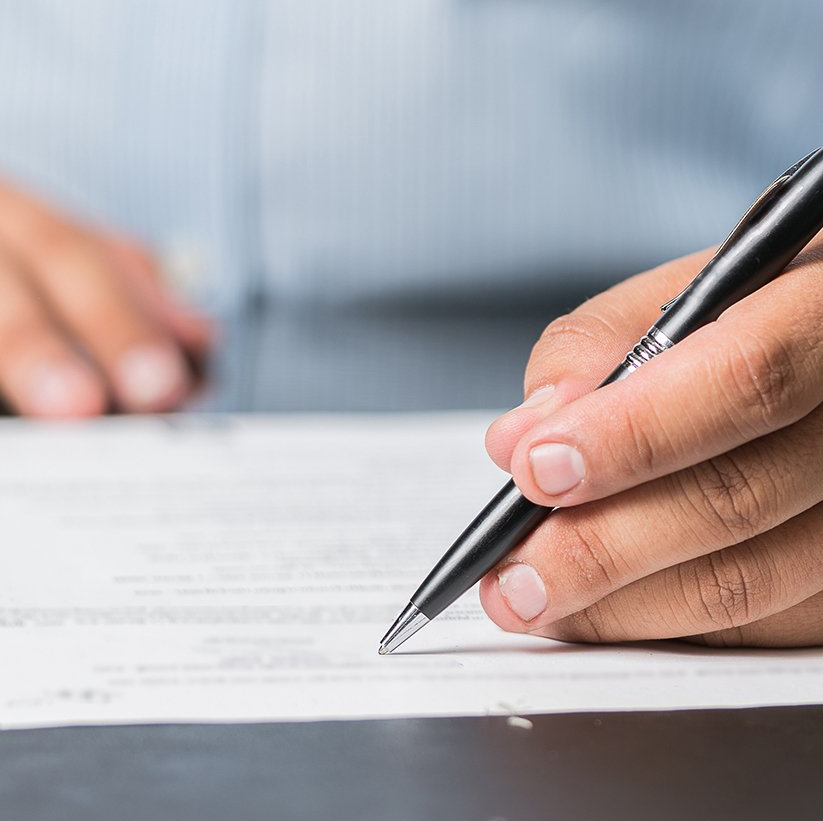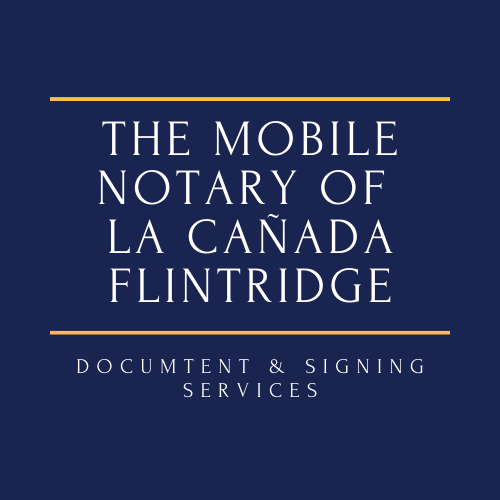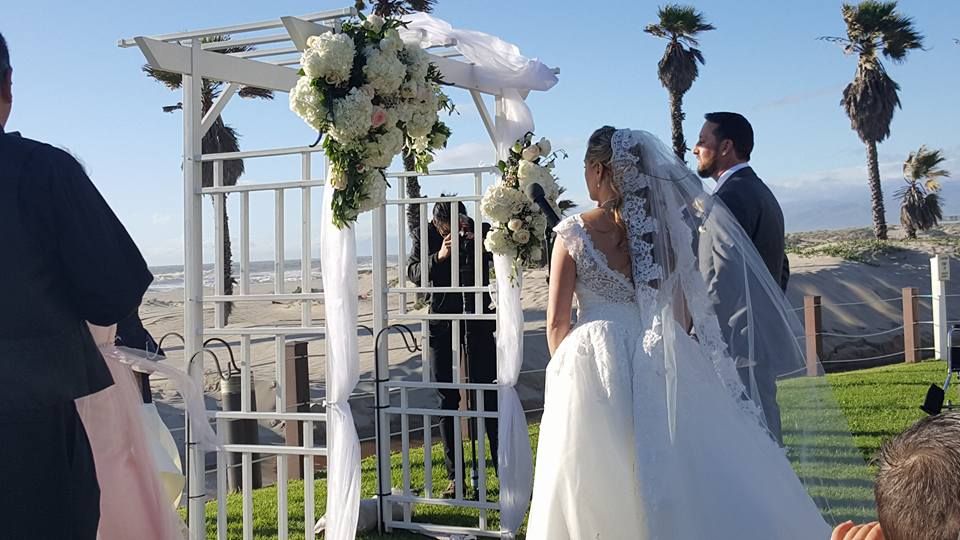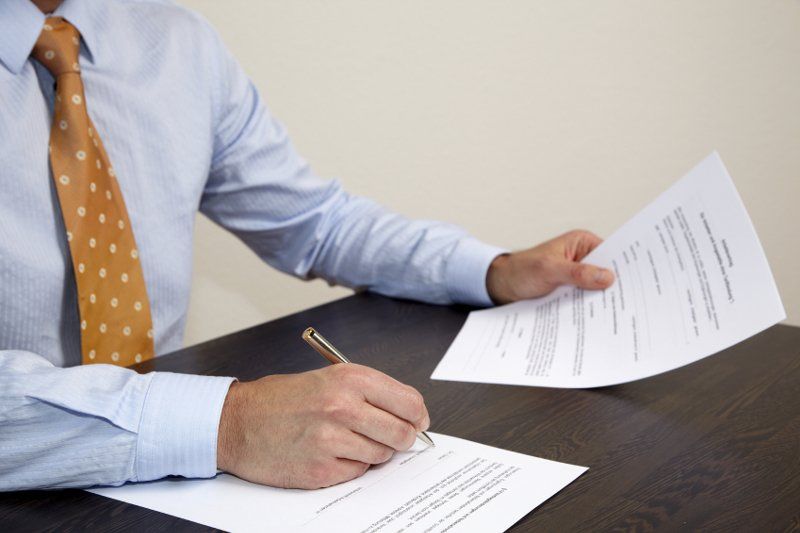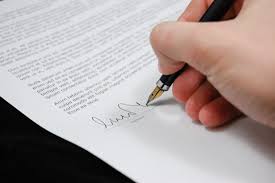A Mobile Notary is Especially Helpful for Healthcare Documents
Notarization Ensures Legal Validity and Accessibility
Navigating healthcare documents can be a complex and time-sensitive process. The Mobile Notary of La Cañada Flintridge provides invaluable service by ensuring that essential documents, such as medical power of attorney and advance healthcare directives, are properly executed and can be signed at a convenient location. This convenience is particularly crucial for patients or family members who may have mobility challenges or time constraints.
With a mobile notary, clients can have peace of mind knowing that important healthcare decisions are recorded accurately and legally. The ability to schedule appointments at our homes, hospitals, or other locations eliminates stress during an already challenging time. This flexibility allows loved ones and care givers to focus on what matters most -- health and well-being.
Moreover, mobile notaries are well-informed about the specific requirements for healthcare documentation in our state, which helps to prevent potential legal issues down the line. By utilizing their services, we ensure that our healthcare wishes are respected and documented in a compliant manner.
Understanding the Role of a Mobile Notary in Healthcare
Mobile notaries play a crucial part in facilitating healthcare document management. Their services ensure that important medical documents are properly executed and witnessed, enhancing the efficiency of healthcare processes.
What Is a Mobile Notary
A mobile notary is a notary public who travels to the document signers' locations. This can include homes, hospitals, or offices. Their primary responsibility is to verify the identity of the signers, ensure that they understand the documents being signed, and witness the signing process.
Mobile notaries are especially vital when physical presence at a notary office is challenging. For example, patients recovering in hospitals may find it difficult to travel. In such cases, mobile notaries provide an essential solution.
Mobile Notary Serves Unique Functions in Healthcare Settings
In healthcare settings, mobile notaries offer specialized services tailored to the unique needs of medical documents. They assist with executing durable powers of attorney, advance healthcare directives, and consent forms. Their presence ensures that these forms are legally recognized, preventing potential future disputes.
For example, executing an advance healthcare directive is a critical process that requires careful attention. The mobile notary confirms that the individual understands their rights and the contents of the document.
Additionally, they help healthcare professionals comply with legal standards while safeguarding patient privacy and confidentiality throughout the notarization process.
Importance of Mobile Notary Services for Healthcare Documents
Mobile notaries improve accessibility to crucial services for patients and healthcare providers alike. They alleviate the burden on patients who may have mobility issues or time constraints.
By offering on-site notarization, we help patients execute important healthcare documents seamlessly. This is particularly helpful for urgent situations where time-sensitive decisions must be made.
Moreover, mobile notaries protect against fraud by validating the identities of signers in real-time. This process fosters trust and integrity in healthcare transactions, ensuring that all parties are informed and consenting.
In summary, a mobile notary enhances the healthcare experience by making documentation easier and more secure for everyone involved.
Types of Healthcare Documents That Require Notarization
Healthcare documents often require notarization to ensure authenticity and legal compliance. Understanding the types of documents that require this process can help us prepare effectively for critical health decisions.
Advance Healthcare Directives
Advance healthcare directives outline our preferences for medical treatment in case we become unable to communicate those wishes. This document can specify the types of treatments we want or wish to avoid.
Notarization helps validate our identity and ensures that our directives are legally binding. In many states, having a notary public witness our signature provides additional protection against potential disputes.
Including clear instructions can guide healthcare providers and our loved ones in making decisions that align with our values.
Medical Power of Attorney
A medical power of attorney designates an individual to make healthcare decisions on our behalf if we become incapacitated. This document allows us to appoint a trusted person, ensuring that our medical preferences are honored.
Notarization is essential as it verifies our identity and intent to assign another person to make critical decisions. A valid notarized document reduces the risk of challenges to the authority of the designated person. Choosing a reliable representative is crucial, as they will act in our best interests during challenging times.
Living Wills
Living wills specify the types of medical treatment we wish to receive or decline in dire medical situations. This legal document provides guidance to healthcare providers regarding our end-of-life care preferences.
Notarization of a living will is a critical step that ensures its enforceability. By having our signature notarized, we help confirm our wishes are genuine and stand up to scrutiny.
Clearly outlining our choices can relieve our loved ones from the burden of making difficult decisions during emotional times.
Advantages of Using a Mobile Notary for Healthcare Documentation
Mobile notaries offer several key benefits when it comes to healthcare documentation. Their services can significantly ease the notarization process for patients and their families, particularly in urgent situations that require immediate attention.
Convenience for Patients and Families
Mobile notaries travel directly to the location of the patient, which enhances accessibility and ease. This is especially valuable for those who are homebound or in healthcare facilities, where transport might be challenging. By eliminating the need to visit a notary’s office, we save time and energy. Families can focus on care instead of logistics. This accessibility ensures that necessary healthcare documents like advance directives are notarized promptly, allowing for a seamless healthcare experience.
Timely Notarization in Urgent Situations
In urgent healthcare scenarios, timing can be critical. Mobile notaries help expedite the notarization process, ensuring that essential documents are completed without delay.
For example, if a patient requires quick installation of a power of attorney or health care proxy, a mobile notary can respond on short notice. By providing prompt service, we help facilitate timely medical decisions, which can be vital in emergencies.
Legal Compliance and Verification
Ensuring legal compliance is a significant responsibility and a mobile notary plays a vital role. They confirm the identities of signers and witness the signing, which helps prevent fraud.
Notarized healthcare documents are often required to be legally valid. By using a mobile notary, we maintain high standards of verification. This safeguard is essential for documents such as living wills and medical powers of attorney. Legal integrity is thus enhanced, giving peace of mind to both patients and families.
How Mobile Notaries Support Hospital and Hospice Environments
Mobile notaries play a critical role in healthcare settings, especially in hospitals and hospice care. Their presence ensures that important documents are executed promptly and legally, catering to the unique needs of patients in these environments.
Facilitating Documents for Incapacitated Individuals
In hospitals and hospice settings, patients may often be incapacitated due to various medical conditions. Mobile notaries help families and healthcare providers navigate the complexities of document signing during these challenging times.
They can assist with crucial paperwork, such as advance directives and power of attorney documents. By coming directly to the patient's location, mobile notaries minimize stress and ensure that essential documents are executed without delay.
Patients can complete needed legal processes while remaining comfortable. This timely intervention supports families in making important decisions regarding medical care.
On-Site Notarization for Restricted Locations
Many hospital and hospice facilities have strict access policies for visitors. Mobile notaries are equipped to handle notarization processes in these restricted environments, providing a convenient solution.
They travel to the site, ensuring that important documents are notarized on the spot. This includes patient consent forms and other legal paperwork often required by healthcare providers.
By providing on-site services, mobile notaries eliminate the need for patients or family members to leave the facility. This accessibility directly benefits individuals in urgent situations, allowing them to focus on care rather than logistics.
Steps Involved in the Mobile Notarization Process for Healthcare Documents
We can simplify the mobile notarization process for healthcare documents into three essential steps. Each step is crucial to ensure that the documents are properly authenticated, providing peace of mind for all parties involved.
Preparing Required Documents
Before we meet with a mobile notary, we must gather all necessary healthcare documents. This may include advanced healthcare directives, power of attorney forms, or any other legal documents requiring notarization.
It's essential to ensure that these documents are complete and legible. We should check for any missing signatures or dates, as these can delay the notarization process. We also need to identify if any supporting documents are required, such as identification for the signer, which helps establish the legitimacy of the request.
Identity Verification Procedures
Identity verification is a critical part of the notarization process. When we meet the mobile notary, we will need to present valid government-issued identification. This can include a driver's license, passport, or state ID.
The notary will carefully examine the ID to confirm it matches our appearance and information on the documents. In some cases, the notary may require a secondary form of identification, especially if there are concerns about identity fraud. We should be prepared to provide additional verification if requested.
Witness Coordination
In certain healthcare documents, witnesses may be required for the notarization to be valid. We must confirm in advance whether witnesses are necessary for the specific documents we want notarized.
If witnesses are needed, we can arrange for them to be present during the notarization appointment. It’s essential that the witnesses are impartial individuals who meet any requirements set forth by state law. The notary will then guide us through the signing process, ensuring that both the signers and witnesses understand their roles in the completion of the documents.
Legal and Ethical Considerations for Mobile Notaries in Healthcare
Mobile notaries play a crucial role in healthcare documentation, but they must navigate various legal and ethical considerations to ensure compliance and protect clients' rights. Awareness of privacy laws and the importance of assessing a client's capacity can significantly impact the notarization process.
Privacy and HIPAA Compliance
We recognize the critical importance of privacy when handling healthcare documents. The Health Insurance Portability and Accountability Act (HIPAA) governs the use and disclosure of Protected Health Information (PHI).
Mobile notaries must be cautious to:
- Avoid discussing sensitive information in public spaces.
- Store any physical or electronic documents securely.
- Confirm that clients understand their rights regarding PHI.
Failure to comply with HIPAA can result in severe penalties, including fines and loss of professional credibility. We must familiarize ourselves with these regulations to ensure we protect our clients’ sensitive information adequately.
Assessing Capacity and Voluntariness
Assessing a client's capacity to sign documents is essential in ensuring the legality of the notarization. We must determine whether individuals understand the nature of the documents they are signing.
Key aspects of this assessment include:
- Asking clear, straightforward questions.
- Observing body language and demeanor for signs of confusion or coercion.
- Ensuring that clients give consent without undue pressure.
If we suspect that a client lacks capacity or is not signing voluntarily, we must refuse to notarize the documents. Upholding ethical standards in capacity assessments contributes to the integrity of our work and protects vulnerable populations.
Choosing a Trusted Mobile Notary for Healthcare Needs
Selecting the right mobile notary involves understanding specific qualifications and asking pertinent questions. At The Mobile Notary of La Cañada Flintridge, we ensure professionalism and reliability, especially when dealing with healthcare documents.
Qualifications to Look For
When we search for a mobile notary, certain qualifications are essential. First, confirm that the notary is licensed and holds an active commission in our state. This verifies their authority to notarize documents legally.
It's also beneficial if the notary has experience in handling healthcare documents, such as advanced directives, powers of attorney, and medical consent forms. Familiarity with these documents can reduce complications.
Additionally, check for any specialized training or certifications related to healthcare notary services. This can demonstrate their commitment to understanding the specific requirements that come with medical documents.
The LCF Mobile Notary Blog

